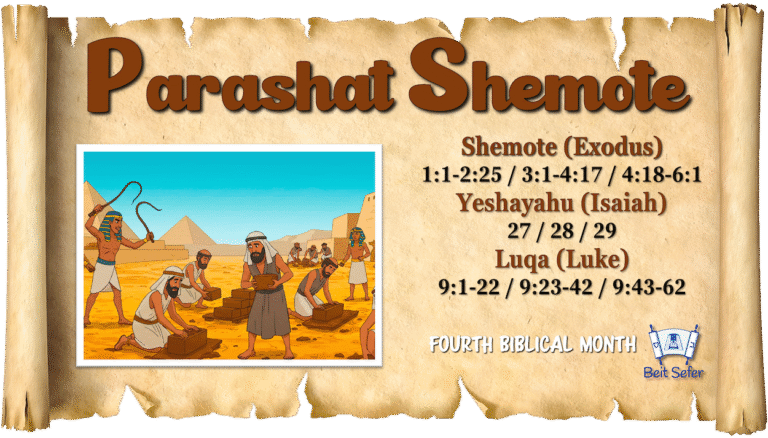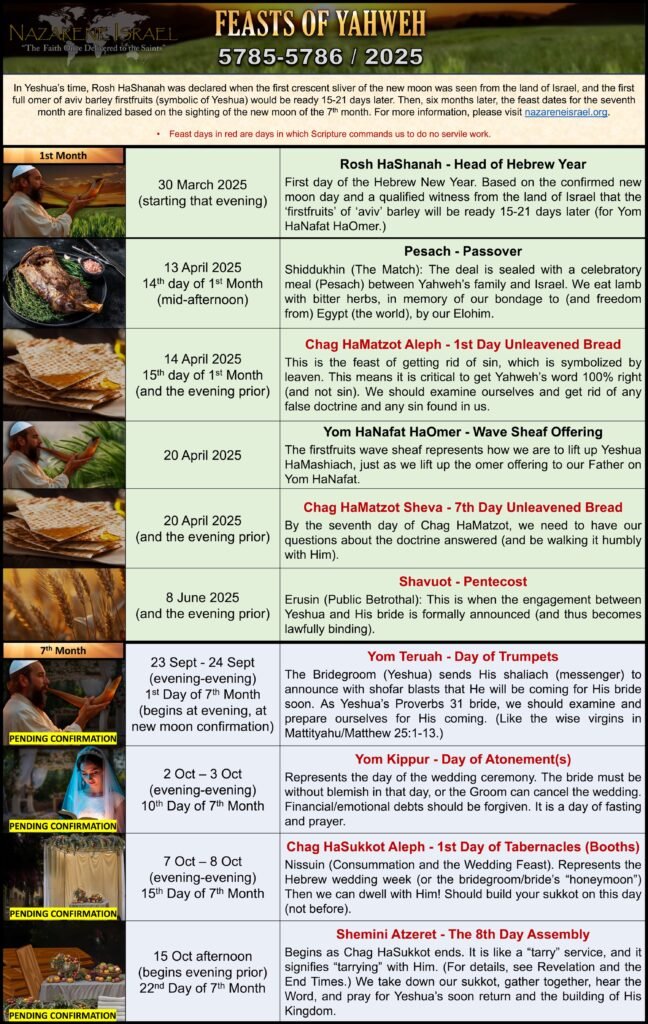Parashat Shemote – Year 3 – The Slavery Yahweh Did Not Ignore.
Shabbat Shalom, Nazarene family.
This week we will study the parashat Shemote, portion of year 3, where we will see how Moshe accepts Yahweh’s call and embarks on his journey to Egypt, albeit with some trepidation. We will learn that even when Moshe doubts, Yahweh gives him signs and the help of his brother Aaron. We will read how, when confronting Pharaoh, things are not easy, and Pharaoh hardens his heart, increasing the burden on the people. In this passage, we will see that when Yahweh calls, challenges arise, but His plan remains in place, and He does not abandon those who trust in Him.
Shemote (Exodus) 4:29-31
29 Then Moshe and Aaron went and gathered together all the elders of the children of Israel.
30 And Aaron spoke all the words which Yahweh had spoken to Moshe. Then he did the signs in the sight of the people.
31 So the people believed; and when they heard that Yahweh had visited the children of Israel and that He had looked on their affliction, then they bowed their heads and worshiped.
This week corresponds to the reading of the texts (in bold):
- Shemote (Exodus) 1:1-2:25 / 3:1-4:17 / 4:18-6:1
- Yeshayahu (Isaiah) 27 / 28 / 29
- Luqa (Luke) 9:1-22 / 9:23-42 / 9:43-62
Summary of the weekly study, Year three:
Shemote (Éxodus) 4:18-6:1
In these verses, Moshe accepts Yahweh’s call, even though his heart is filled with doubts and fears. Yahweh reminds him that he will not go alone and gives him signs and Aaron as support. Moshe confronts Pharaoh, but instead of freeing the people, Pharaoh hardens his heart and increases the suffering of the Hebrews. The people become discouraged, and Moshe cries out to Yahweh, asking why He allows so much pain. In this passage, we learn that although obedience can bring difficulties, Yahweh never forgets His promise and is working in every step of the process.
Yeshayahu (Isaiah) 29
In these verses, Yahweh warns Yerushalayim, called Ariel, that her empty rituals are not enough if her heart is far from Him. He speaks of a judgment that will bring confusion, spiritual slumber, and blindness, affecting leaders and wise men. However, He also announces a future of restoration, where the humble will rejoice, ears will be opened, and injustice will disappear. Yahweh promises to transform darkness into light and confusion into understanding. In this passage, we learn that Yahweh seeks a sincere heart, and that His mercy is greater than judgment, bringing hope to His people.
Luqa (Luke) 9:43-62
In these verses, Yeshua once again announces His sacrifice, but the disciples do not understand. They argue about who is the greatest, and Yeshua teaches them that greatness lies in humility and service. He also corrects their judgmental attitudes toward others who perform miracles in His name and rebukes them when they want to call down fire on the Samaritans. Finally, He clarifies what it means to follow Him: to renounce comforts, say goodbye to the past, and put the Kingdom first. In this passage, we learn that following Yeshua requires humility, mercy, and radical commitment, without distractions or looking back.
–
Enjoy this fun activity with the whole family. Inside you will find development questions for the three weekly sections (Torah, Haftarah and Brit Chadasha). While the older ones discuss the questions and their answers, the younger ones can color the picture related to the teaching, solve a maze, find the 7 differences and much more. We encourage you to do it week by week and instill in your children the habit of studying Yahweh’s word as a family.
We hope you and especially your sons and daughters enjoy this effort. For it is through the study of the Scriptures that we can come to understand the love and care that Yahweh has always had for us. And also to perceive that He has been taking care of even the smallest detail, so that we can take care and enjoy all that He gives us. That is why it is so important that our children learn and grow up knowing that they are loved by the Creator of all that exists.
Shalom.
To view the Tanach studies, click here
To view the Brit Chadasha studies, click here




